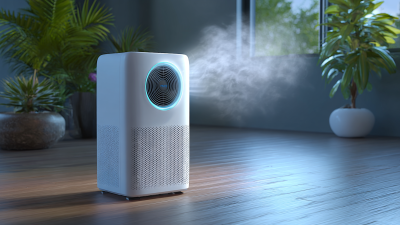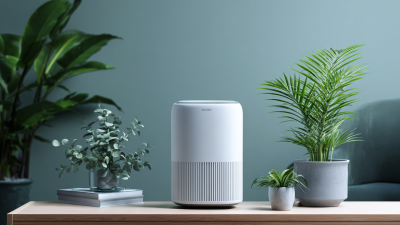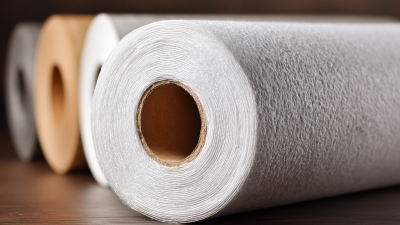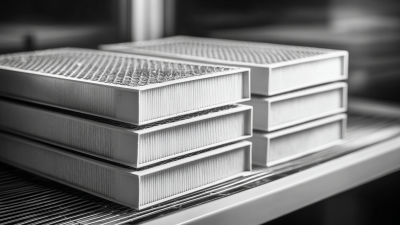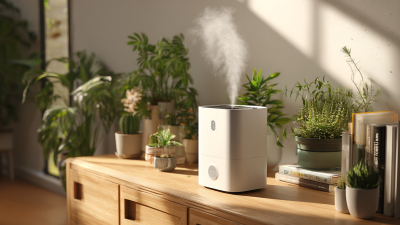Maintaining optimal humidity levels in your home is essential for comfort and health, particularly in dry climates or during winter months. However, the efficiency of your humidifier significantly depends on using the right filters for humidifiers. According to a report from the US Environmental Protection Agency, inadequate humidity can cause an increase in respiratory issues, allergies, and dry skin, affecting up to 30% of the population annually.
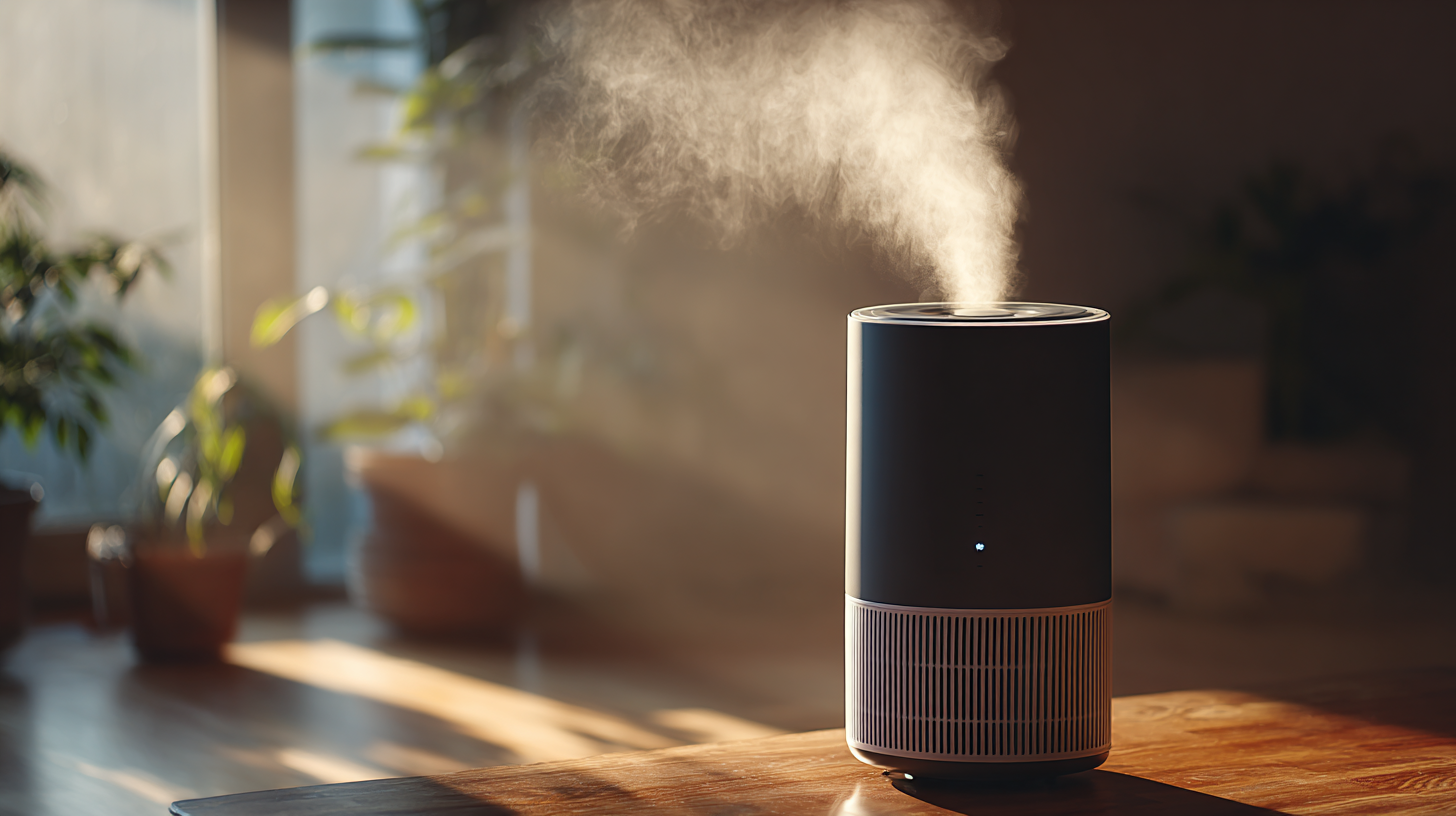
Furthermore, the Association of Home Appliance Manufacturers states that using appropriate filtration can improve a humidifier's performance by up to 50%, ensuring that the moisture added to the air is clean and free from harmful contaminants. By understanding the various types of filters available and their role in maximizing humidifier efficiency, you can make informed decisions that contribute to a healthier living environment while optimizing your humidification system.
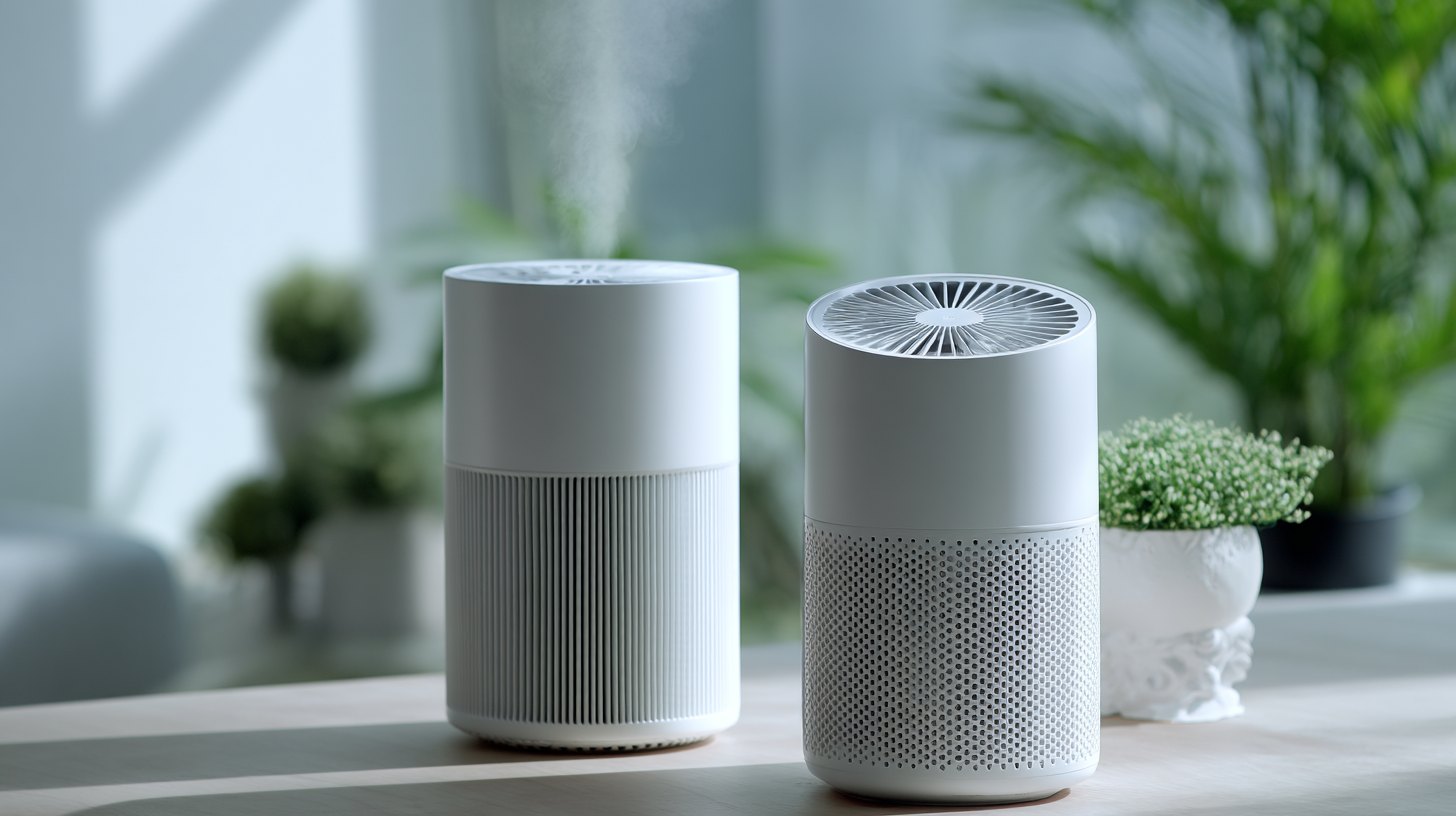 When choosing a humidifier, understanding the types of filters available is crucial for maximizing its efficiency. There are primarily three types of humidifier filters: wick filters, ultrasonic membranes, and HEPA filters. Wick filters are designed to absorb water and release moisture into the air, making them ideal for evaporative humidifiers. They require regular replacement to prevent mold and bacteria growth. Ultrasonic membranes, on the other hand, use high-frequency vibrations to produce mist. These filters don't need replacement as often, but maintaining cleanliness is essential to avoid mineral buildup, which can affect performance.
When choosing a humidifier, understanding the types of filters available is crucial for maximizing its efficiency. There are primarily three types of humidifier filters: wick filters, ultrasonic membranes, and HEPA filters. Wick filters are designed to absorb water and release moisture into the air, making them ideal for evaporative humidifiers. They require regular replacement to prevent mold and bacteria growth. Ultrasonic membranes, on the other hand, use high-frequency vibrations to produce mist. These filters don't need replacement as often, but maintaining cleanliness is essential to avoid mineral buildup, which can affect performance.
Additionally, HEPA filters are used in some humidifier models that double as air purifiers. They capture allergens, dust, and other particles, providing cleaner air in conjunction with moisture. When selecting a humidifier, consider not just the type of humidification but also the filter's maintenance needs and efficacy at improving your indoor air quality. Each filter type offers distinct advantages, so understanding their roles can help you choose a humidifier that best suits your home's requirements.
When selecting the right filters for your humidifier, several key factors come into play to maximize efficiency and improve air quality. Firstly, consider the filter type that best suits your humidifier's design—wick, foam, or mineral-absorbing filters each have their unique benefits. According to the Association of Home Appliance Manufacturers (AHAM), using the correct filter type can improve humidifier performance by about 30%, ensuring optimal moisture output and efficiency.
Another vital aspect is the filter's material and maintenance requirements. High-efficiency particulate air (HEPA) filters, for instance, can effectively capture up to 99.97% of airborne particles, according to the U.S. Environmental Protection Agency (EPA). However, they often require more frequent replacements than standard filters, potentially leading to higher long-term costs. Moreover, water quality significantly influences filter lifespan; using distilled or demineralized water can reduce mineral buildup and extend your filter's life by up to 50%, as reported by the National Institute of Health (NIH). Selecting the right filter based on these considerations can not only enhance your humidifier's performance but also contribute to a healthier living environment.
| Filter Type | Material | Lifespan (Months) | Efficiency (%) | Maintenance Ease (1-5) |
|---|---|---|---|---|
| Evaporative Filter | Paper | 2-3 | 75 | 3 |
| Ultrasonic Filter | Ceramic | 6-8 | 90 | 4 |
| Steam Filter | Metal | 12 | 80 | 2 |
| Wicking Filter | Polyester | 3-6 | 70 | 4 |
Proper maintenance and replacement of humidifier filters are crucial for ensuring optimal performance and efficiency. According to a report by the American Society of Heating, Refrigerating and Air-Conditioning Engineers (ASHRAE), humidifiers equipped with clean and efficient filters can improve indoor air quality significantly, reducing respiratory issues by up to 30%. To maintain your humidifier's efficiency, it is essential to check and replace the filters regularly, ideally every month during peak usage seasons. This practice not only enhances the humidifier's effectiveness but also prolongs its lifespan.
Tips: Consider investing in high-efficiency particulate air (HEPA) filters that capture finer particles and allergens, contributing to better air quality. Always refer to your humidifier's user manual for specific guidelines on filter replacement to avoid any warranty issues. Additionally, keeping the humidifier clean and free from mineral buildup can maximize its performance. Use distilled water where possible, as tap water often contains minerals that can clog filters and reduce efficiency.
It’s also important to monitor the humidity levels in your home. The optimal indoor humidity range is between 30% and 50%. Using a hygrometer can help ensure that your humidifier is operating within this range, preventing over-humidification that can lead to mold growth and other issues. Regularly adjusting your humidifier settings based on actual humidity levels ensures that you use it effectively while minimizing energy consumption.
When it comes to enhancing your humidifier's performance, the right filter can make all the difference. One crucial tip is to choose filters that are compatible with your specific humidifier model. Always refer to the manufacturer's guidance to ensure you are selecting a filter designed to effectively trap minerals and impurities from the water, which can help reduce dust and maintain better air quality. High-efficiency particulate air (HEPA) filters are an excellent choice for those looking to maximize purification, as they capture even the smallest particles, providing cleaner moisture output.
Another important consideration is the frequency of filter replacement. Over time, filters can become clogged with contaminants, reducing the humidifier's effectiveness. Regularly replacing filters as recommended can ensure optimal operation. Additionally, consider using distilled water in your humidifier, as this can significantly decrease the buildup of minerals, leading to longer filter life and better overall humidity control in your environment. By focusing on these filter selection and maintenance tips, you can significantly improve your humidifier's performance and enjoy a more comfortable living space.
This chart compares the efficiency ratings of various types of humidifier filters on a scale from 1 to 10. Choosing the right filter can significantly improve the performance of your humidifier, thus enhancing your indoor air quality.
When it comes to maximizing your humidifier's efficiency, choosing the right filters is crucial. However, many users fall into common traps that can lead to decreased performance. One prevalent mistake is selecting filters based on price rather than quality. Cheaper filters may not capture the necessary particles, allowing dust and allergens to circulate in your home. According to industry studies, using high-efficiency filters can improve air quality by up to 50%, significantly reducing respiratory issues.
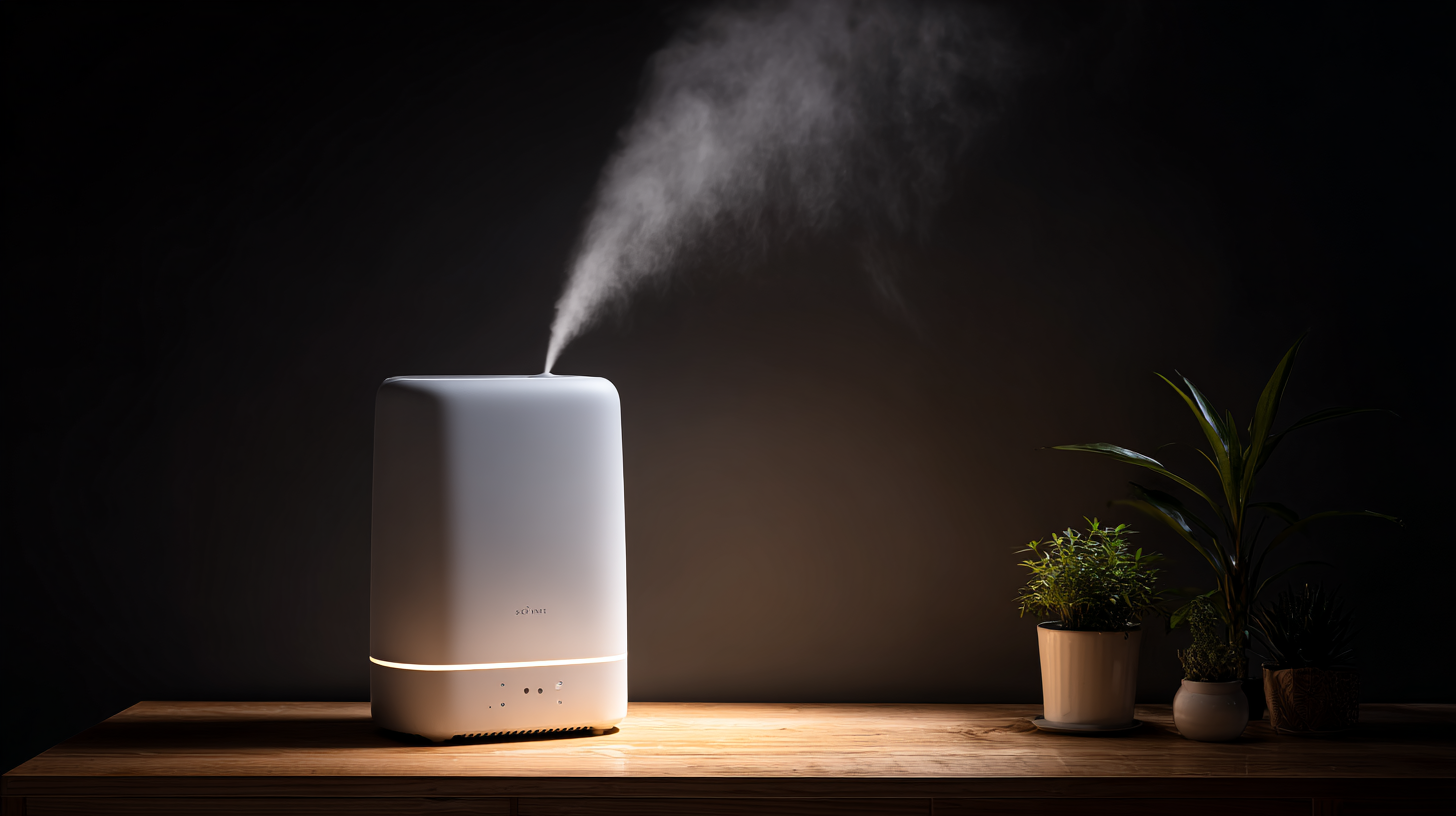
Another mistake is neglecting regular filter maintenance. Filters can become clogged with moisture and contaminants, making them ineffective. Experts recommend checking and replacing filters every 1-3 months, depending on usage and the manufacturer's guidelines. Keeping a regular schedule ensures your humidifier operates at peak performance, preventing potential dampness problems that can lead to mold growth.
Tips: Ensure you purchase filters that are specifically designed for your humidifier model to avoid compatibility issues. Additionally, consider investing in filters with antimicrobial properties to help prevent bacterial growth. Lastly, monitor humidity levels in your home; a well-regulated environment not only supports the humidifier's function but also promotes overall home health.
